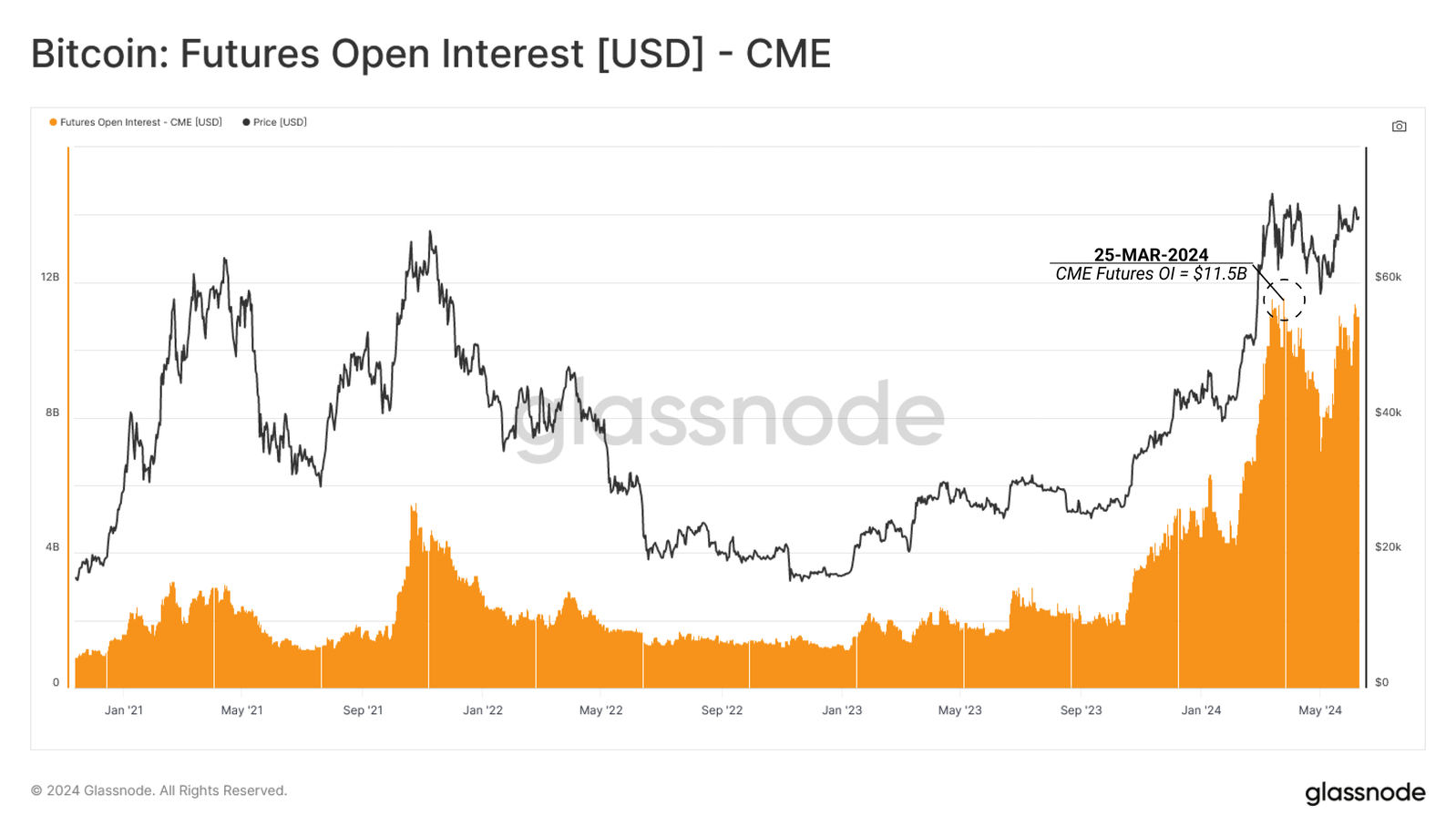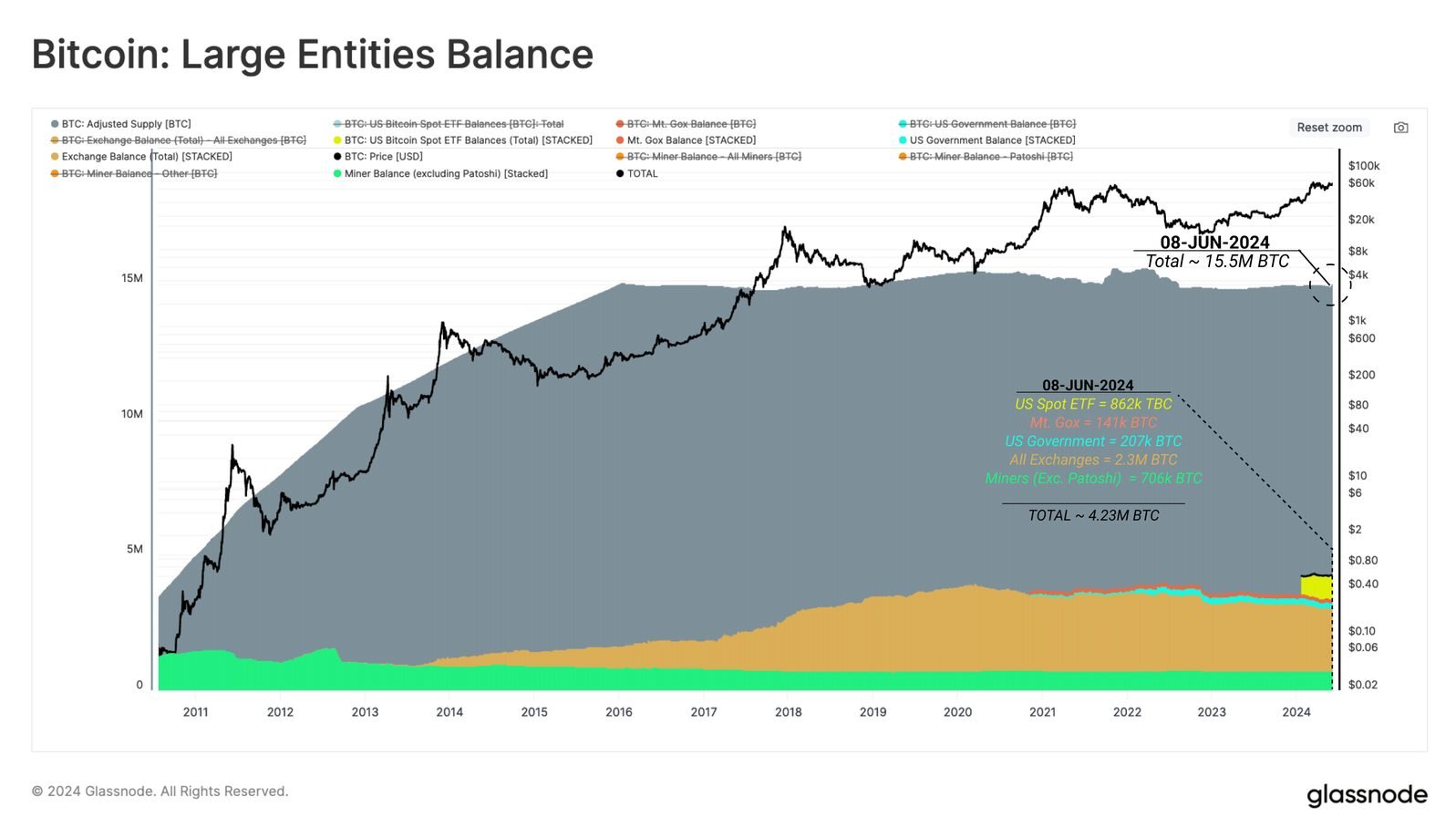Share this article
Despite the impressive flows registered by spot Bitcoin exchange-traded funds (ETFs) in the US have seen impressive inflows, the expected positive impact on the market prices is being hindered by a strategy called “cash-and-carry.” According to on-chain analysis firm Glassnode, investors are longing Bitcoin through US Spot ETFs and shorting the asset via futures traded in the CME.
The CME Group futures market’s open interest has stabilized above $8 billion, indicating that traditional market traders are increasingly adopting the cash-and-carry strategy. This involves buying a long spot position and simultaneously shorting a futures contract.
Hedge funds, in particular, are amassing large net short positions in Bitcoin, totaling over $6.3 billion in CME Bitcoin and $97 million in Micro CME Bitcoin markets. This supports the notion that ETFs are being used primarily for longing spot exposure in these arbitrage trades.


The cash-and-carry trade between long US Spot ETF products and shorting futures has effectively neutralized the buy-side inflows into ETFs, leading to a neutral impact on market prices and indicating a need for organic buy-side demand to stimulate positive price movement.
Notably, the amount of BTC funneled into large institutions grows daily with the ETF trading. Mt. Gox Trustee holds 141,00 BTC, the US Government 207,000 BTC, all exchanges combined have 2.3 million BTC, and miners, excluding Patoshi, possess 706,000 BTC. The total balance of these entities is approximately 4.23M BTC, representing 27% of the adjusted circulating supply.


Coinbase, through its exchange and custody services, holds a significant portion of the aggregate exchange and US Spot ETF balances, with 270,000 BTC and 569,000 BTC respectively. The exchange’s role in market pricing has grown, especially with an increase in whale deposits to Coinbase wallets post-ETF launch.
However, a notable part of these deposits correlates with outflows from the GBTC address cluster, which has been exerting selling pressure.
Share this article

